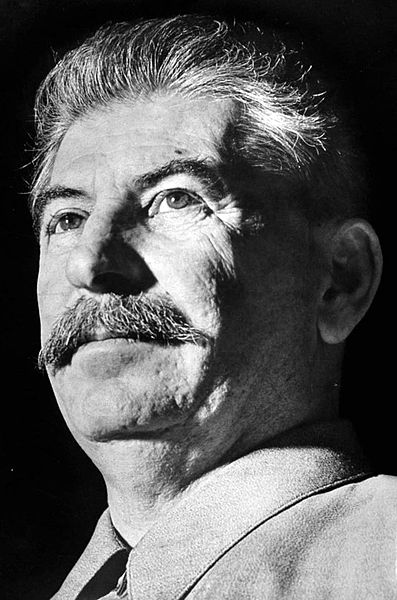Here’s a good rule: If you’re interviewing someone who holds sway over the life and death of others, don’t do it unless you’re free to ask them pertinent, probing questions. Otherwise monsters can be made to seem moderate. Case in point: In 1934, Joseph Stalin, one of the most evil bastards ever, was given the velvet glove treatment by none other than H.G. Wells, who enjoyed conversing with other great men. I’m not saying that Wells could have known everything about Stalin’s terror, but he should have known enough. While it’s interesting from an historical perspective because of the principals, it’s also disquieting for its lack of discernment. The opening of the discussion, which has been republished in the New Statesman:
“Wells:
I am very much obliged to you, Mr Stalin, for agreeing to see me. I was in the United States recently. I had a long conversation with President Roosevelt and tried to ascertain what his leading ideas were. Now I have come to ask you what you are doing to change the world . . .
Stalin:
Not so very much.
Wells:
I wander around the world as a common man and, as a common man, observe what is going on around me.
Stalin:
Important public men like yourself are not ‘common men.’ Of course, history alone can show how important this or that public man has been; at all events, you do not look at the world as a ‘common man.’
Wells:
I am not pretending humility. What I mean is that I try to see the world through the eyes of the common man, and not as a party politician or a responsible administrator. My visit to the United States excited my mind. The old financial world is collapsing; the economic life of the country is being reorganised on new lines.
Lenin said: ‘We must learn to do business,’ learn this from the capitalists. Today the capitalists have to learn from you, to grasp the spirit of Socialism. It seems to me that what is taking place in the United States is a profound reorganisation, the creation of planned, that is, Socialist, economy. You and Roosevelt begin from two different starting points. But is there not a relation in ideas, a kinship of ideas, between Moscow and Washington?
In Washington I was struck by the same thing I see going on here; they are building offices, they are creating a number of state regulation bodies, they are organising a long-needed civil service. Their need, like yours, is directive ability.”
Tags: H.G. Wells, Joseph Stalin

